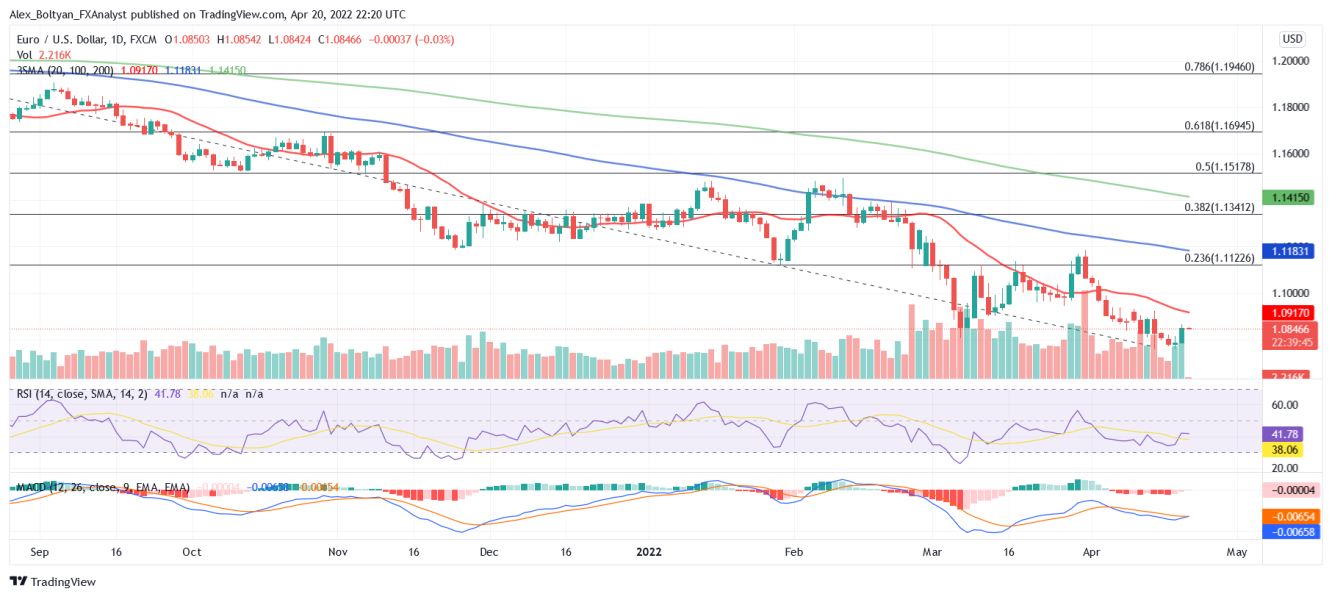The EUR/USD pair extended the bounce from two-year lows on Wednesday but has been unable to consolidate above the 1.0850 area, keeping the short-term bearish bias alive. Hawkish comments from ECB members and the pullback in US yields have been the main drivers behind the EUR/USD recovery.
Member of the ECB Governing Council Martins Kazaks said a rate hike was “possible” in July, boosting the shared currency. However, while European economies remain exposed to the conflict in Ukraine, ECB officials have not rushed into a tightening cycle, and the divergence with the Fed stance could limit a substantial long-term recovery of the euro.
On the other side of the equation, the U.S. dollar weakened broadly on Wednesday as Treasury yields dropped across the curve. The yield on the United States 10-Year note fell sharply from a high of 2.981% to a low of 2.819%.
From a technical perspective, the EUR/USD pair maintains a bearish bias according to daily chart indicators. While the RSI bounced from lows in tandem with price and is gaining a positive slope, it remains well below its midline. At the same time, the MACD remains in negative territory, although showing decreasing selling momentum.
The EUR/USD price holds below its main moving averages, which maintain bearish slopes and offer dynamic resistance, with the 20-day SMA currently around 1.0917. If the pair manages to break above the latter, the next resistance could be found around the 1.1000 psychological level.
On the other hand, the YTD low of 1.0757 stands as immediate support, followed by April’s 2020 low of 1.0727 and then the 1.0700 mark.


